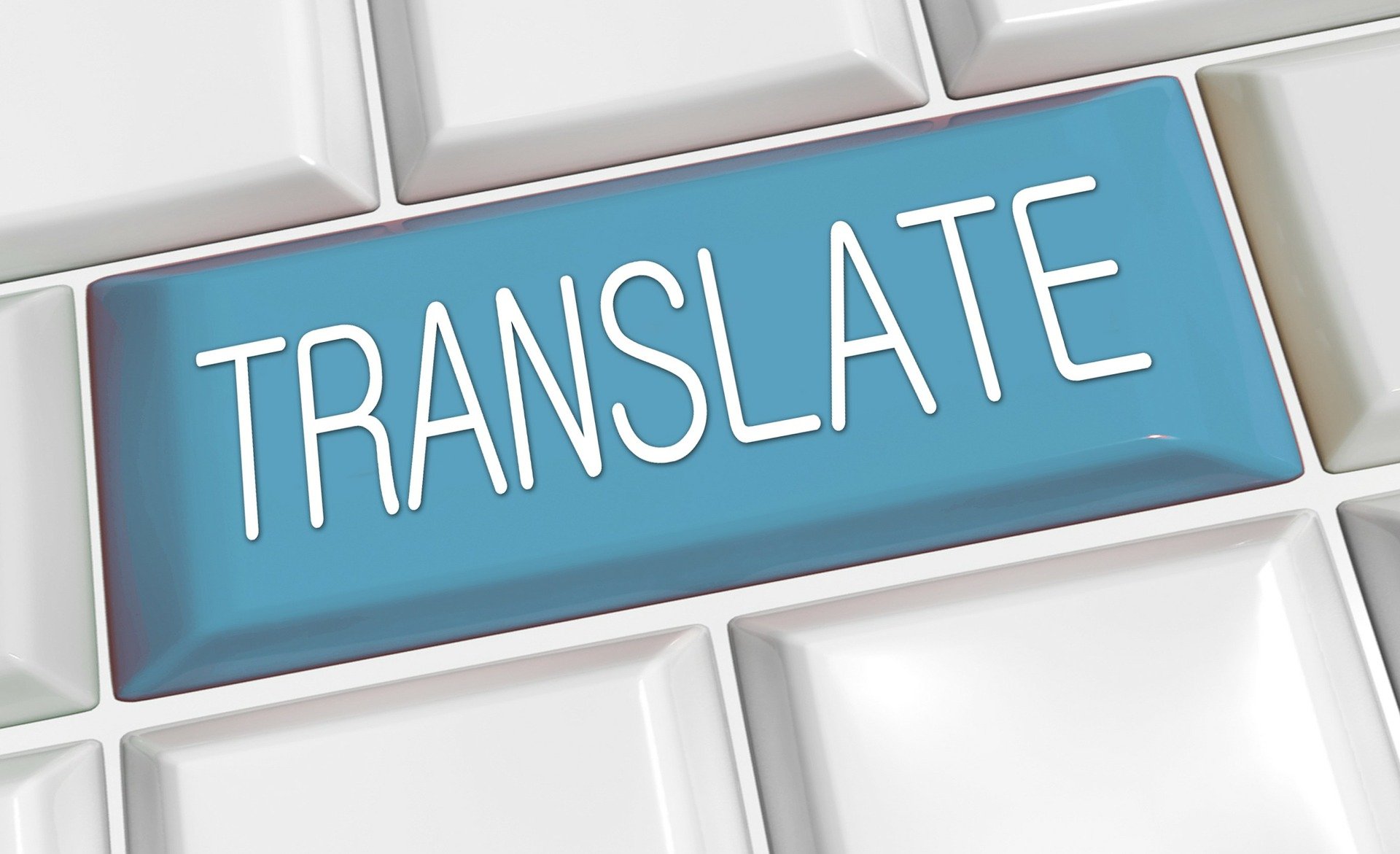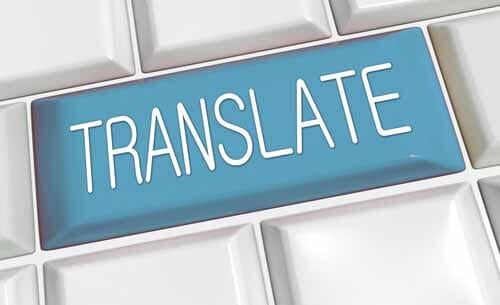Listen to Audio Version:
When giving a presentation or conducting a meeting that will include people who do not speak the same language, utilizing a qualified interpreter helps make sure the message is accurate and understood. And knowing the options and best practices for working with an interpreter will help the meeting go smoothly and have the best outcome.
Interpreters can be either "simultaneous" or "consecutive" depending on the type of in-person or virtual meeting.
Simultaneous interpreting, also called “conference” interpreting, is appropriate for larger presentations or webinars where there is less of a discussion and more of a learning environment. The interpreter(s) would interpret what is being said in real-time as the speaker is presenting the information. Think of the UN as a good example.
Consecutive interpreting is appropriate for smaller meetings where there is more of a discussion or an exchange of information and ideas. The speakers would speak then pause to give the interpreter time to relate what is being said. Think of a medical appointment or one-on-one business meeting.
Today we’ll focus on simultaneous interpreting. To learn more about consecutive interpreting best practices read our blog - How to Work Effectively with an Interpreter.
Qualified Interpreters for Virtual Meetings
Zoom meetings and virtual presentations are the new way of doing business. These types of meetings reach a broader audience and increase the possibility of having multilingual participants present by making it easier to connect with anyone around the world from the comfort of home or the office.
To eliminate the language barriers that interfere with connecting to a larger, global audience, businesses can now easily include an experienced virtual interpreter on video calls and Zoom meetings. Live virtual interpreters broaden your reach and help you communicate with non-English speakers during video meetings.
When you need to connect with your non-English speaking colleagues, customers, and clients using a trusted and reliable professional interpretation agency is the best solution to ensure accurate communications and keep your business thriving. They’ll make it easy for you to schedule a qualified interpreter to attend your meeting and their interpreters have expertise in a variety of subjects and industries, so you’ll be matched with the best person for the subject matter.
Qualified Interpreters for In-Person Meetings
If your meeting is in-person, using interpreter presentation services can widen your audience and connect you with a whole new non-English speaking market. A professional interpretation agency can provide reliable interpreters who are experienced in your industry.
Tips for using an Interpreter for Presentations
When working with a simultaneous interpreter, whether in-person or virtually, there are some best practices to follow to ensure that your presentation runs smoothly and is well received by all participants.
- Be prepared. It is extremely important that you, the speaker, be prepared in advance. You can help the interpreter or the interpretation agency by providing an advance copy of your speech including any PowerPoint presentation, written speech, or speaking notes. If you cannot provide these in advance, at least provide an outline. A good interpreter will translate the materials before the event to make sure they understand everything being presented and are prepared.
- Discuss your speech first. Allow time to discuss the speech with your interpreter and explain any technical terms, formulas, or numbers and to answer any questions they may have from reviewing your materials in advance. If you can, provide written support materials to the interpreter to refer to during your presentation.
- Set yourself up for success. Position yourself so the interpreter can see you but make sure to face the audience. You need to maintain a connection to the audience while also letting the interpreter see your expressions and gestures.
- Speak clearly and pace yourself. Make sure you speak loudly and clearly. Speak at a moderate pace and allow the interpreter time to adjust to your accent. A good speed is 80 words per minute (about 8 – 10 typed lines). Arrange signals with the interpreter so they can let you know if you are speaking too fast. Watch for these signals and adjust to make sure you are speaking clearly, loudly and slowly. If your meeting is virtual be sure to watch the interpreter’s video window to make sure you can see their signals and cues.
- Allow for pauses. Interpreters dread speakers who talk fast and have no punctuation especially when the speaker uses a lot of numbers and formulas. Don’t be afraid to pause often to help regulate the pace.
- Avoid slang, colloquialisms, and abbreviations. We know that “take the bull by the horns”, “hit a home run”, and “be a top dog” all sound great in English. But your non-English speaking audience won’t get the meaning. Instead, use clear language such as “take initiative” or “to be the best” that can be interpreted and understood by all.
- Use humor wisely. Discuss your topic and any planned humor in advance with the interpreter to see if the puns or jokes are culturally appropriate. If not, there may be a way to modify them. If you don’t have a chance to discuss the humor in advance, you are better off skipping it.
Using an interpreter during a live presentation can be exciting and challenging. As long as you are prepared and use a qualified interpreter, you will be successful.
What to Expect from a Simultaneous Interpreter
Now that we’ve reviewed your responsibilities, let’s discuss what to expect from a professional conference interpreter.
- Positioning: The interpreter should be placed in an unobtrusive position, like the back of the room, so that both the interpreter and the audience can see the speaker. Arranging the participants in this way helps the interpreter see the speaker’s expressions and helps the speaker see the interpreter’s signals to slow down or pause. In a virtual meeting make sure both the speaker and interpreter keep their video on so they can see each other throughout the presentation.
- Faithful Echo: The interpreter will echo the speaker’s words in the same register and with the same emotion. They will also speak in the first person – if the speaker relates a personal story and says, for example, “I went on a trip,” the interpreter will say “I went on a trip.”
- Expressions and Gestures: Since the interpreter is in an unobtrusive position, ideally behind the audience, they will not interpret expressions and gestures. And keep in mind that not all gestures have the same meanings from one culture to the next, so it’s best for the speaker to avoid them just like humor or idioms.
- Manage Expectations: Expect that the interpretation will be thorough and accurate. Everything will be repeated – even mistakes and swear words.
- Speed: The interpreter will match the speed of the speaker so what the listeners are hearing keeps pace with the speaker’s expressions as the presentation progresses.
- Confidentiality: The interpreter will keep the material and content of the presentation confidential, including the participating companies and people in attendance.
- Make a Connection: It is important for the speaker to make a connection with the audience – not the interpreter. The goal is to establish a relationship with the participants.
When in need of an interpreter for an important presentation, business meeting or virtual conference, speak with a qualified language service provider to determine the best solution for the event. Learn more about Using Interpreting Services.
Rapport International specializes in multilingual communications, providing language translation and interpretation services that are accurate and culturally appropriate. We use the right voice, correct terminology to avoid liability, customize services to your needs, and deliver on time and within your budget. And with our 100% satisfaction guarantee, you can trust that it’s done right. Contact us today if you would like more information or to get a free quote.
About the Author - Tracey Wade
Tracey Wade lives in Morris County, NJ with her family. As a freelance writer for Rapport International, she has developed a love for languages and enjoys learning about different cultures. In her free time, Tracey loves to read, write, play games, and hike with her husband. As she becomes an empty nester, Tracey is looking forward to traveling and spending more time with friends.
Rapport International specializes in multilingual communications, providing language translation and interpretation services that are accurate and culturally appropriate. We use the right voice and the correct terminology to avoid liability, customize services to your needs, and deliver on time and within your budget. With our 100% satisfaction guarantee, you can trust that it’s done right. Contact us today if you would like more information or to get a free quote.
Popular Posts
Popular industry news, interviews, technologies, and resources.




















